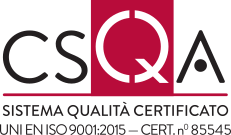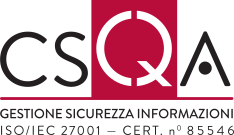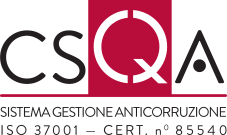The project envisages for the creation of an Internet of Things (IoT) Network for the Public Administration, where citizens and companies, in addition to the PA itself, can integrate their own sensors. PAs collect and transport data from these sensors, to make them available to their owners and to any articulation of the PA itself, for institutional purposes and public interests. In particular, the project pursues the following aims:
- to provide PAs with data from all the sensors present on the territory, for their institutional monitoring purposes
- to favour the development of the IoT with a rationalized approach to the use of frequencies, through the constitution of a single network managed by the PA, thus allowing the optimization of resources
- to build a map of all the sensors present on the territory, through the population of a sensors Registry with appropriate descriptive characteristics and identification of the owner
- to integrate sensors of private individuals, citizens and companies, into the IoT Network for the Public Administration, in order to expand the detection area, returning the data collected by their sensors to the private individuals themselves, by means of application interfaces, the standard MQTT messaging protocol (both of which can also be used to send messages to their sensors in downlink) or by means of a secure access portal (via Federa/SPID) for the consultation of the collected data.
The project uses the LoRaWan technology, integrating the LoRa Gateways into the Lepida Network: homogeneous and unitary network, with high reliability, set up for 100Gbps, with links typically in optical fiber and radio on licensed 26GHz band, configured with 1Gbps and 10Gbps links and redundant access with 2 active links for 2Gbps or 20Gbps. The sensors provide the management of different types of data, e.g. indoors (energy consumption control, waste reduction, etc.), and outdoors (temperature, atmospheric precipitations, waste reduction, etc.).
To this end, Lepida prepared an experimental protocol and proposed it to some pilot territories, remaining available to partner Bodies who express interest in further details.
Some Unions of Municipalities in the provinces of Reggio Emilia, Modena, Ravenna, Forlì-Cesena and the Metropolitan City of Bologna have already expressed their interest. The protocol commits Lepida and the signatory Body to define a project that allows, on the one hand, to cover the territory (as illustrated above), on the other hand, to collect data of local interest from the sensors, send them to a central server through the Lepida Network and make them available in cloud, through APPs, or, in the case of Public Administrations, through a dedicated portal and the SensorNet platform.
The most impactful applications
There is an extensive catalogue of LoRaWAN certified sensors, covering the main application areas of the "smart city", such as parking management, air quality monitoring, fire detection, home security, low cost lighting, waste management, vehicles fleet management, precision agriculture, buidlings energy consumption.
Lepida issued a market survey notice in order to create a Sensors Catalogue, available at the following link (in Italian).
Thanks to the website created for the project, available at the following link (in Italian), and to the Regional SensorNet Project, each Body is provided with an indoor and outdoor monitoring system of its own sensors on its territory, using Big Data Analytics techniques and based on a collection system in the cloud, profiled for each member, and capable to make the best use of IoT technologies on the LoRaWAN network.




